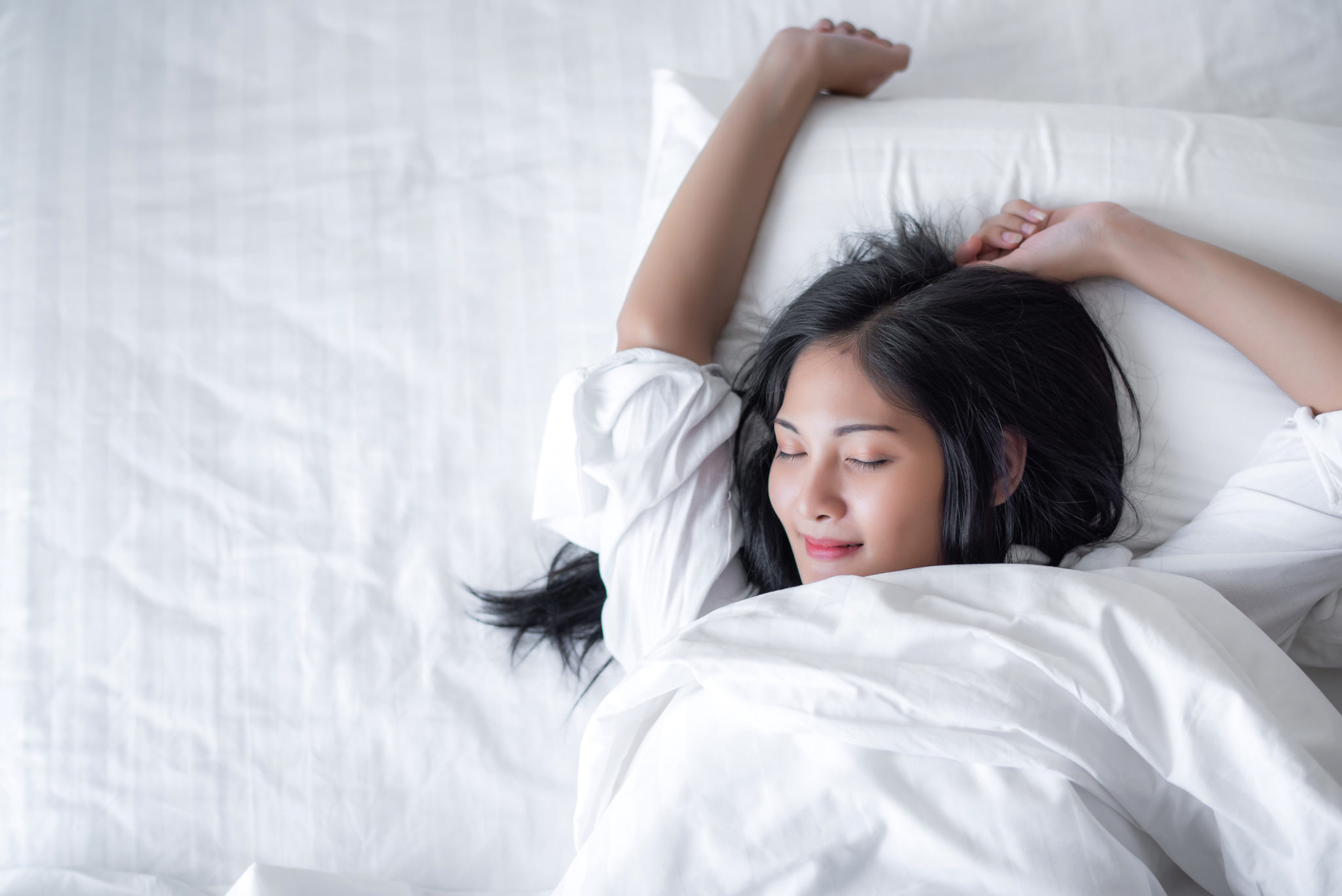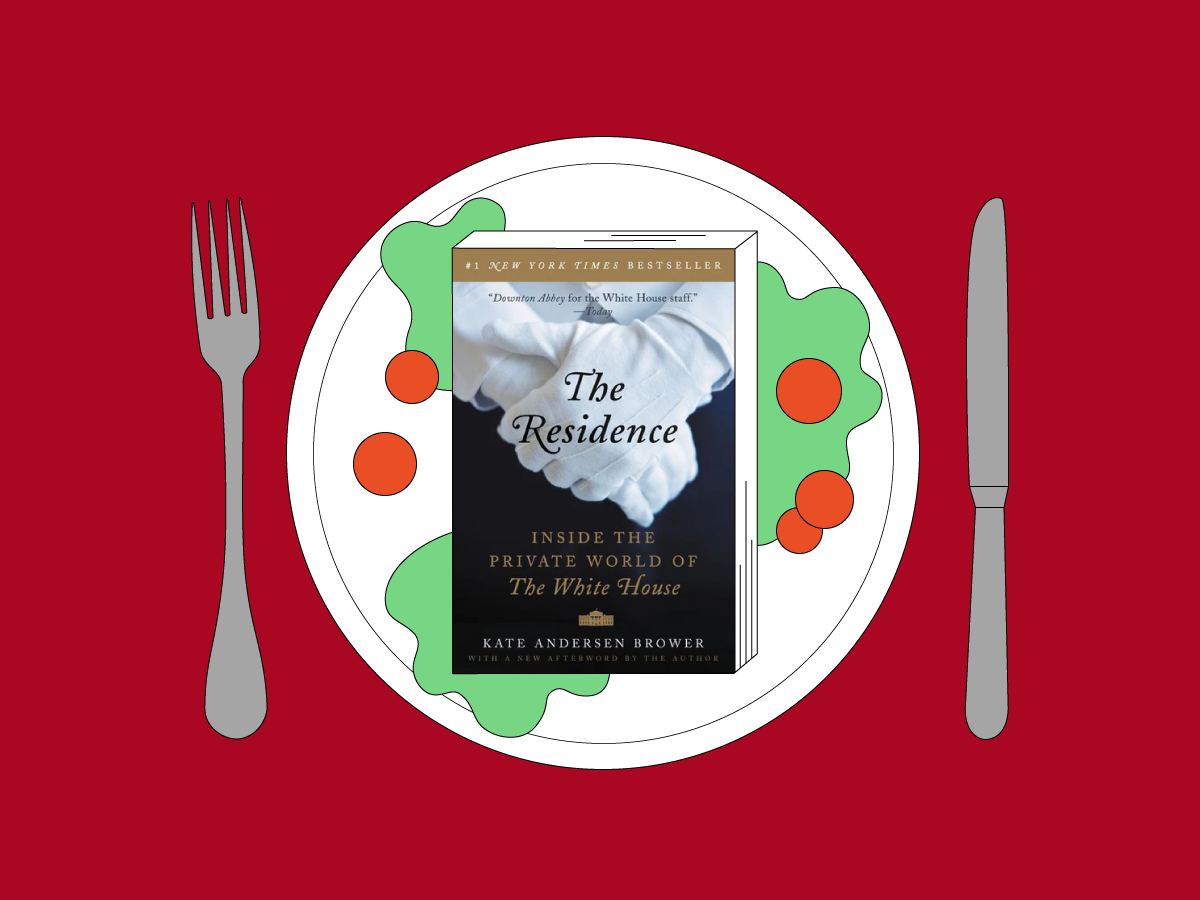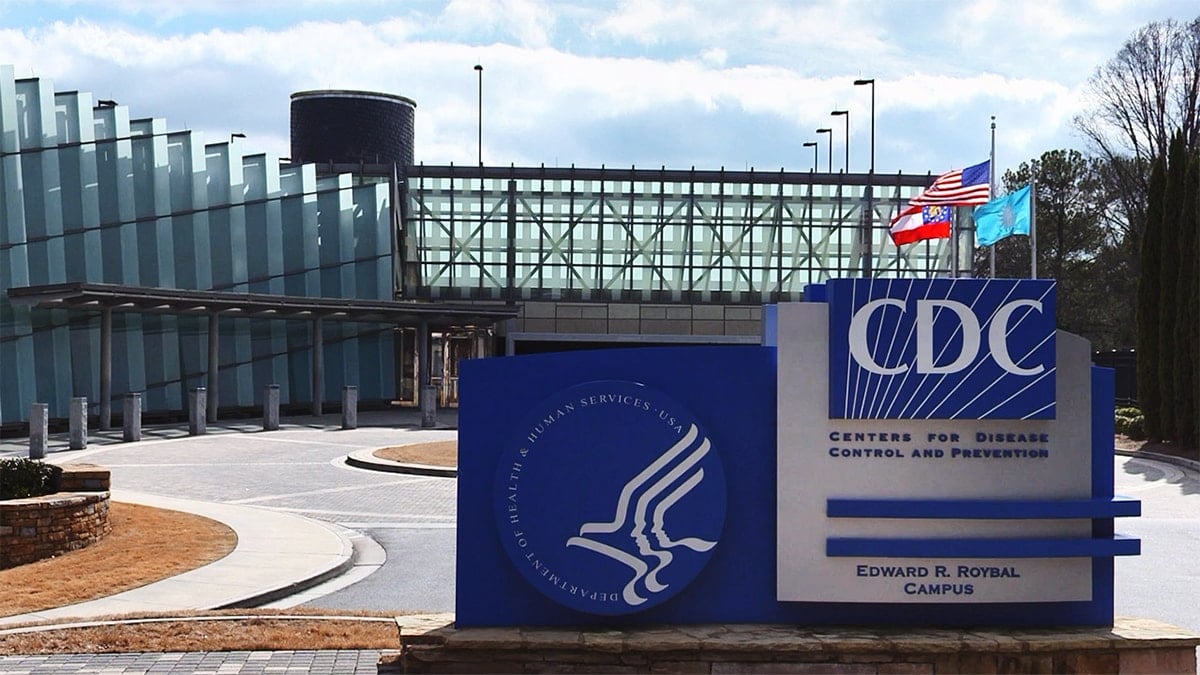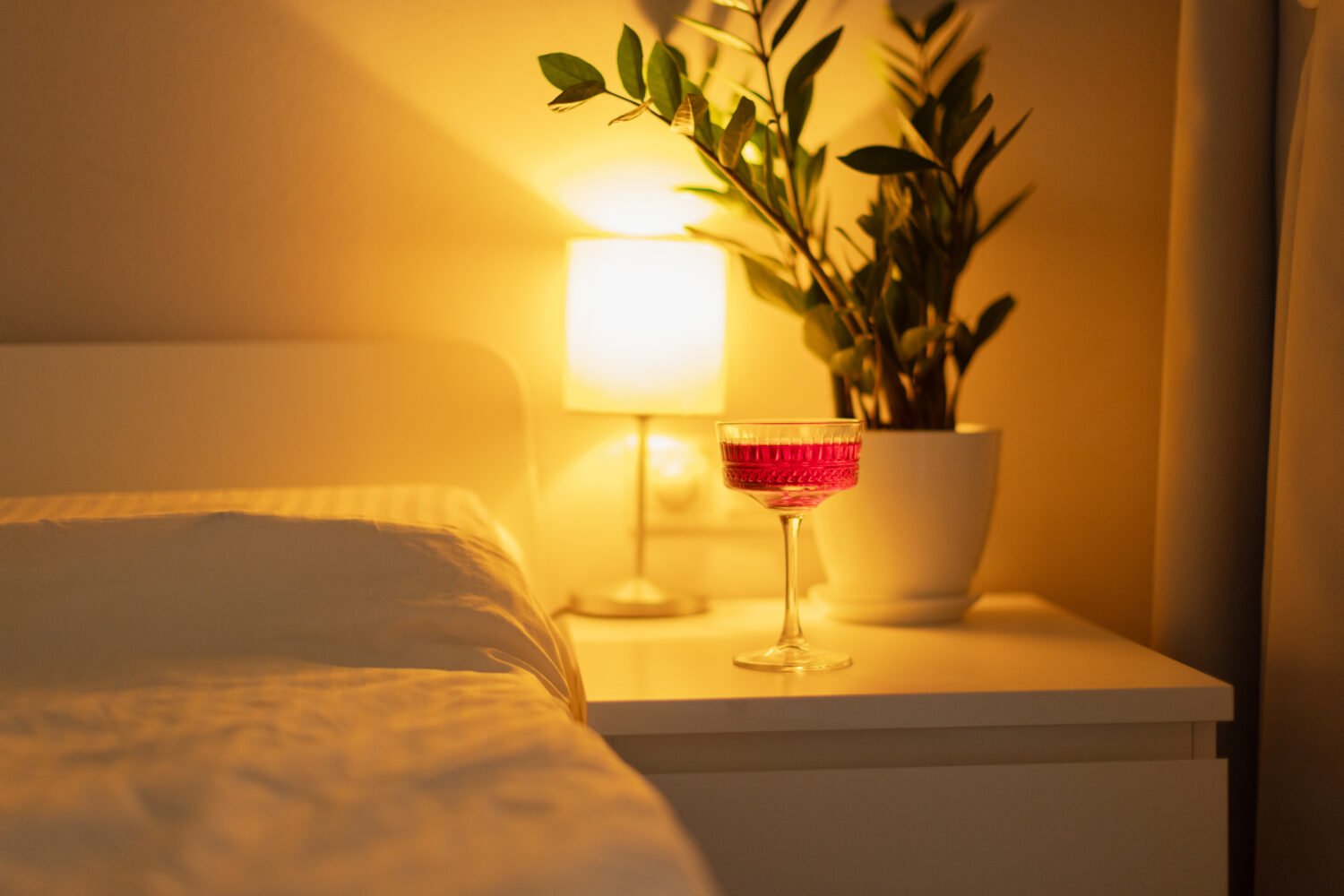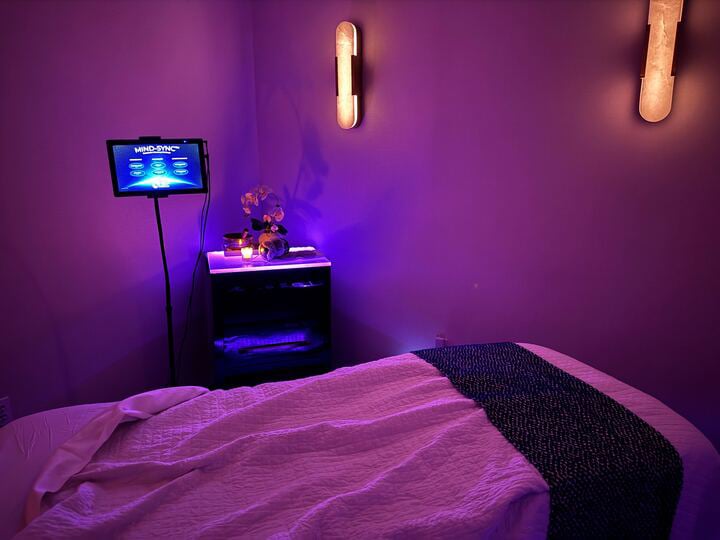In 2017, Netflix CEO Reed Hastings identified his company’s top competitor. It wasn’t, he claimed, “FX, HBO, or Amazon.” He wasn’t worried about video games or Instagram or all of us just up and getting social lives.
“Think about it: When you watch a show from Netflix and you get addicted to it, you stay up late at night,” Hastings said. In other words: “We’re competing with sleep.”
Tech CEOs can possess a grandiosity that borders on lunacy (see Elon Musk’s plan to colonize Mars by 2050), but Hastings’s semi-facetious comment was, objectively, insane. His adversary was sleep? That’s like declaring war on hydrating or breathing. Sleep scientists took note, horrified.
“Our field was up in arms,” says Ilene Rosen, program director for the University of Pennsylvania’s Sleep Medicine Fellowship and past president of the American Academy of Sleep Medicine. “Nobody should be trying to compete with sleep.”
Hastings has plenty of company among those who are trying to do just that. Particularly around here. Sometimes, sleep’s foes are tech firms, like Twitter, the favored vice of Washington’s professional classes. Other times, the competition comes from forces predating Silicon Valley, or even silicon. Stress, for instance. Sleep troubles are especially acute among military families and low-income people, two demographics with significant presences in the Washington area. Ditto folks whose anxiety has soared since Donald Trump moved into the White House.
According to a 2016 study by the Centers for Disease Control and Prevention, more than a third of American adults are regularly not getting enough sleep. Data shows that the average amount we get “has dropped by two hours in the last century,” Rosen says, from nine a night to seven. (The National Sleep Foundation recommends seven to nine hours for ages 18 to 64, seven to eight for those 65 and older.)
Here is the truth about sleep: If you don’t do it, you will die. If you do it but for not enough time, you will die sooner than you otherwise would. Sleep is right up there with nutrition and exercise, that third pillar of health upon which all your biological and mental functions rely.
Researchers have lately confirmed what our bodies have been telling us for thousands of years. Sleep deprivation compromises the work your body does while you’re out cold—allowing your physiological systems to restore themselves, among other operations—and it undermines everything you do while you’re awake. Sleep is critical to cognitive processing, memory, and learning. Its loss increases your risk for chronic health problems, including hypertension, obesity, and heart disease. Sleep is “intricately tied to mental health,” and a lack of it “raises our risk for the development of anxiety, depression, even PTSD and suicide,” says Wendy Troxel, a senior behavioral and social scientist at the RAND Corporation. Frequent sleep disruption and sleep apnea are associated with a change in DNA structure called telomere shortening, a marker of accelerated aging, and chronic sleep deprivation has been linked to heightened rates of dementia and Alzheimer’s disease.
If your sleep deprivation doesn’t result in your demise, it could still be fatal for someone else: In the United States, one person dies every hour in a traffic accident caused by a fatigue-related error.
How do we shake ourselves out of this collective (waking) nightmare? Maybe we’re on our way. You don’t have to be a Goop subscriber to know that the cultural zeitgeist— trending toward health, wellness, and self-care—is in slumber ’s favor. Options for treatment are growing, too. The sleep-deprived masses seem genuinely eager to change. Is America ready to go the f— to sleep?
For thousands of years, in the deepest, darkest hour of night, we woke.
As Roger Ekirch, history professor and author of At Day’s Close: Night in Times Past, discovered in researching his 2005 book, people used to sleep in two shifts, separated by an intermission of wakefulness. Prior to the 1800s, we’d go to bed according to when the sun set, sleep for three or four hours, then rise at midnight. The witching hour was ideal for completing mindless chores, communing with God, having sex. At around 1 in the morning, we went back to bed, rousing again three to four hours later. (This, Ekirch hypothesizes, is one reason so many people wake in the middle of the night—our bodies carry an echo of this pattern that humans followed for millennia.)
Then came gas, electricity, and artificial lights. People started staying up later. But morning wake-up times remained the same.
With the Industrial Revolution, attitudes changed further. Says Ekirch: “They wanted to become more efficient, productive. Sleep was viewed, increasingly, as a necessary evil.” In the 19th century, an “early rising” movement sprang up in both the UK and the US. This is the likely origin of our belief that sleep is for the weak or indolent. Two centuries later, its legacy remains, evident in the myth that early birds are morally superior to night owls or that success comes to those who sacrifice sleep on the altar of ambition.
Just last year, a New York Post headline blared that corporate overachievers say sleep is a luxury for the lazy, quoting several CEOs who claim to thrive on a maximum of four hours of sleep a night. Unlike other health behaviors, sleep is still oddly stigmatized.
“Most people don’t brag about how they don’t go to the gym or ate a bunch of doughnuts that day,” says Leah Irish, director of the North Dakota State University Sleep Lab. “But people really do seem to think that not having enough time to sleep is somehow something to be proud of.” This notion endures despite growing evidence that depriving the workforce of sleep is both counterproductive and expensive. According to a RAND study of five of the largest economies on Earth, missing out on sleep results in a net loss of $411 billion a year for Americans.
Had the medical establishment prioritized explaining the function of sleep and defending it as vital to survival, perhaps we’d all be sounder sleepers now. But for ages, no such effort was made. “Society’s apathy toward sleep has, in part, been caused by the historic failure of science to explain why we need it,” Matthew Walker, director of the Center for Human Sleep Science, writes in Why We Sleep. “Sleep remained one of the last great biological mysteries. . . . Until very recently, doctors and scientists could not give you a consistent or complete answer as to why we sleep.”
They weren’t even given thorough training on the subject. Helene Emsellem, medical director of the Center of Sleep and Wake Disorders, in Chevy Chase, recalls that when she went to med school in the 1970s, “I wasn’t taught about obstructive sleep apnea as a disease.” Today the condition is estimated to affect some 18 million and increases the risk of depression, diabetes, and heart attacks. But the specialty devoted to addressing the issue really didn’t develop until the early 1980s.
Put another way, sleep medicine is only about as old as the youngest Gen-Xer.
A theory: In the future, we will look back on sleeping with our phones docked inches from our pillows the way we currently look back on smoking cigarettes in restaurants or slathering baby oil across our bodies as we sizzled in the sun.
If nothing else, there’s been enormous growth in the universe of professionals who can help us avoid REM-disrupting life choices. Over the past few years, the field of sleep science has “exploded,” says Troxel, “showing really conclusively the importance of sleep for every aspect of our health, well-being, and productivity.”
The experts’ advice goes well beyond telling the clueless sleepless to store their phones in the kitchen or basement or in a fortified safe in the garage. New types of treatment, such as cognitive behavioral therapy—which the American College of Physicians recommended in 2016 as the first-line treatment for insomnia—are better understood and more widely available than ever. Whereas a patient used to need to see a therapist to get CBT, now insomniacs can get the therapy through an app such as Sleepio.
People don’t brag that they don’t go to the gym or they ate a bunch of doughnuts. But people seem to think not having enough sleep is something to be proud of.
There’s also a growing awareness of sleep’s socioeconomic component—that not all insomnias are created equal. “We always think about these individual behaviors that influence our sleep, and those are important,” says Troxel. “But when you’re dealing with such a public-health epidemic, you’ve got to think beyond the individual.” As a growing body of research reveals, “sleep health isn’t evenly distributed throughout society. People from low-income backgrounds and ethnic minorities, particularly African Americans and Hispanics, have sleep problems at significantly higher rates than whites.”
“The people who are getting worse sleep have less autonomy and less control over their lives in general,” says Lauren Hale, editor of Sleep Health, the journal of the National Sleep Foundation. “People who aren’t getting sleep are people who are juggling multiple jobs, struggling with issues of safety and financial insecurity.”
But that awareness goes only so far. “My concern,” says Susan Redline, professor of sleep medicine at Harvard Medical School, “is that a lot of people involved with policy, or even in academia who are outside of the sleep field, are more likely to recognize the importance of diet and exercise and substance abuse than sleep.”
Not that diet and exercise don’t matter. But the ability to do either well is contingent on one’s ability to get sufficient sleep, Redline explains. “All of these health behaviors are closely interrelated.”
Uncle Sam has clambered aboard, too. The National Healthy Sleep Awareness Project, a joint effort of the CDC and the American Academy of Sleep Medicine, launched in 2013 with the aim of up-ping the number of teenagers and adults in the US getting sufficient sleep, decreasing car accidents due to drowsy driving, and increasing the medical evaluation of those with symptoms of obstructive sleep apnea.
The highest-profile examples of America’s new appreciation for sleep aren’t doctors at sleep clinics or authors of peer-reviewed research.
It was 2016 when the concept of “self-care” erupted. The years since the most recent presidential election have seen interest surge in the cross-section of medicine, fitness, and beauty that makes up the “wellness” category. Possibly this is just a collective act of desperation as citizens of a country whose health-care system is, like, 75 percent GoFundMe. Maybe it’s our coping mechanism as we face a crisis so vast, global, and beyond our control that we channel our panic into taking care of the one thing we think we can maintain: ourselves.
Either way, an aspect of our lives that has benefited from it, at least from a PR perspective, is sleep. Cultural ambassadors such as Arianna Huffington, whose book The Sleep Revolution was published in 2016, helped bring the conversation about sleep and its value into the mainstream.
As it has become more acceptable, even encouraged, to invest in your physical well-being through boutique fitness classes and a mad chemists’ set of skin serums, so too has it become more common to spend money on a battery of sleep aids, from smart mattresses to cooling pillows to wearable tech. Sleep’s reputation has been so thoroughly revamped that the New York Times Styles desk has wondered whether sufficient sleep is “the new status symbol.”
Meanwhile, the proliferation of sleep apps and Fitbit-type gadgets has spawned a new sleep disorder: orthosomnia, “which is where you are essentially obsessively worried about what your sleep data says,” Ilene Rosen explains, to the point that your sleep is even more disrupted than before you started collecting that data in the first place.
Along with new sleep-related disorders, there are new professions. Nancy Rothstein, a professional “sleep ambassador,” visits Fortune 500 corporations, schools, and other groups to vouch for the importance of sleep and to educate employees on how to get the amount they need. “There is definitely a shift in the attitude towards sleep,” she says. “The person who says, ‘I only sleep four hours a night, I do great,’ either is a bona fide short sleeper, which is rare—only one in 100 people is a true short sleeper—or they’re doing a lot of caffeine or coke, and I wouldn’t want to be on the road with them while they’re driving.”
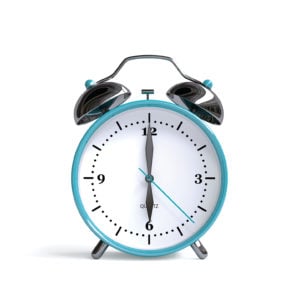
Even the military has adopted new sleep standards. In 2013, the United States Army Medical Department Journal published a report acknowledging that “sleep habits among military populations are problematic” and that “poor sleep hygiene occurs in parallel with the global increase in obesity and metabolic syndrome and contributes to a decrease in performance.” In light of this assessment, the military now considers sleep as one component in the “performance triad.” Along with nutrition and physical activity, soldiers are told to “make sleep a priority” and that “optimal sleep is critical to mission success.”
Progress is more slow-going among the young—but not through any fault of their own. In 2014, the American Academy of Pediatrics recommended that middle and high schools start no earlier than 8:30 am to “align school schedules to the biological sleep rhythms of adolescents.” As the AAP reported, “the average adolescent in the US is chronically sleep-deprived and pathologically sleepy.” It cited a National Sleep Foundation poll that found 59 percent of sixth-through-eighth-graders and 87 percent of high-school students were getting less than the recommended 8.5 to 9.5 hours of sleep on school nights.
Starting in the 2016–17 academic year, Seattle public schools pushed start times for middle and high schools back by almost an hour, from 7:50 to 8:45; tardiness went down and grades went up. In recent years, some school districts in the Washington area have pushed high-school start times back—to 8 or 8:10 in Fairfax County (almost an hour later than before) and to 7:45 in Montgomery County (20 minutes later).
If those times seem early to you, the fact that they represent progress is an indication of how sleep-unfriendly our school schedules are. All in all, more than 90 percent of high schools in America start before 8:30, a time that not only hurts students but also endangers everyone who commutes while swarms of exhausted teenagers are driving to first period.
Imagine you’re trying to fall asleep in the year 1327. Though this is a thrilling time to be royalty—a teenage Edward III is crowned king of England, a 27-year-old Alfonso IV is crowned king of Aragon—for purposes of this thought experiment, we’re all just going to be peasants.
Allow Ekirch to provide a tour of “the perils, the vexations, the annoyances, that made people, especially the lower classes, chronically sleep-deprived” centuries ago. To name about a dozen: “The cold, the heat, noise. People feared fire—that was the greatest threat of all. Crime, the fragility of our homes, rain, storms. People would routinely stay up for fear that their walls might cave in. Bugs were a persistent problem to keep one awake.” Not to mention that you were “oftentimes crammed in a bed with several other people, sometimes entire families.”
This is what leads Ekirch to say that, despite the considerable woes of 2019 that keep us up at night, we’re living in what could be a golden age of slumber. “Never in human history—I would go so far as to say at least for the Western world—have conditions been better for sounder sleep.”
“If nothing else,” he says, “we should take some solace from that fact.”
This article appears in the October 2019 issue of Washingtonian.

